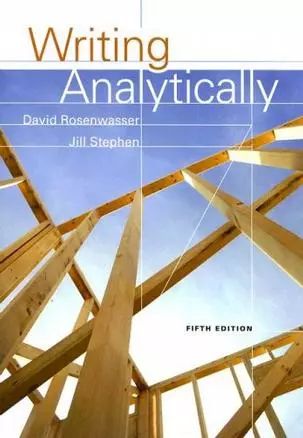- [贪心]BM95 分糖果问题
lanbing
多语言LeeCode的题解算法数据结构leetcode
一、题目牛客题目链接:分糖果问题_牛客题霸_牛客网LeeCode题目链接:135.分发糖果-力扣(LeetCode)题目描述:一群孩子做游戏,现在请你根据游戏得分来发糖果,要求如下:1.每个孩子不管得分多少,起码分到一个糖果。2.任意两个相邻的孩子之间,得分较多的孩子必须拿多一些糖果。(若相同则无此限制)给定一个数组arr代表得分数组,请返回最少需要多少糖果。要求:时间复杂度为O(n)空间复杂度为
- [贪心算法]BM96 主持人调度(二)
lanbing
多语言LeeCode的题解贪心算法算法
一、题目牛客题目链接:主持人调度(二)_牛客题霸_牛客网题目描述:有n个活动即将举办,每个活动都有开始时间与活动的结束时间,第i个活动的开始时间是startistart_istarti,第i个活动的结束时间是endiend_iendi,举办某个活动就需要为该活动准备一个活动主持人。一位活动主持人在同一时间只能参与一个活动。并且活动主持人需要全程参与活动,换句话说,一个主持人参与了第i个活动,那么该
- 深度学习实验:GPU加速,突破性能瓶颈
AI天才研究院
AgenticAI实战计算AI人工智能与大数据计算科学神经计算深度学习神经网络大数据人工智能大型语言模型AIAGILLMJavaPython架构设计AgentRPA
深度学习实验:GPU加速,突破性能瓶颈1.背景介绍随着深度学习模型变得越来越复杂和庞大,传统的CPU已经无法满足训练和推理的计算需求。GPU凭借其强大的并行计算能力和专门为矩阵运算优化的架构,成为了深度学习领域的核心加速器。本文将探讨如何利用GPU加速深度学习实验,突破性能瓶颈,提高模型训练和推理的效率。2.核心概念与联系2.1GPU架构GPU(图形处理器)最初是为了加速图形渲染而设计的,但由于其
- qt使用QListWidget
一零点六
qt开发语言
在QListWidget里面设置一个固定大小的Qwidget在QListWidgetItem中,并且把QListWidgetItem放入QListWidget中QListWidgetItem*item=newQListWidgetItem;QWidget*widget=newQWidget;QVBoxLayout*widgetLayout=newQVBoxLayout;QLabel*imageLa
- ArcMap图斑四至坐标计算教程
JGiser
Arcpyarcgis
一、功能概述本教程介绍如何在ArcMap中自动计算矢量图层的每个图斑四至坐标(西、东、南、北边界点),并将结果保存到属性表中。四至坐标采用WGS84坐标系(经纬度),输出格式为:西:经度,纬度东:经度,纬度南:经度,纬度北:经度,纬度二、适用场景行政区划边界范围标注地块位置信息记录地理要素范围统计分析地图图例和位置索引制作三、两种实现方法方法一:手动操作(适合少量图斑)添加字段:右键图层→打开属性
- linux 信号量sem 使用示例
lxt的knowledge
linux服务器c语言
提示:文章写完后,目录可以自动生成,如何生成可参考右边的帮助文档文章目录前言一、信号量是什么?二、代码示例1.posix2.systemV总结前言提示:这里可以添加本文要记录的大概内容:信号量主要用于进程间使用信号量:分为posix和systemV信号量posix信号量:sem_open:打开/创建semsem_close:关闭semsem_unlink:删除smesem_post:P操作+1se
- 【Linux】进程管理
nanguochenchuan
Linux操作系统linuxchrome运维
进程基础概念进程的定义与特征进程是操作系统资源分配的基本单位,具有以下核心特征:独立性:拥有独立的地址空间和系统资源动态性:具有创建、执行、终止的生命周期并发性:多个进程可以并发执行结构性:由代码段、数据段、堆栈等组成进程vs线程特性进程线程资源开销大(独立地址空间)小(共享地址空间)通信方式IPC机制共享内存创建/销毁成本高低安全性高(隔离性好)低(共享资源)进程生命周期创建:通过fork()系
- 手把手构建智能体:多模态AI Agent视-语-决融合实战指南
目录一、原创架构设计:三重融合智能体系统横向对比流程图:传统AIvs多模态Agent二、企业级可运行代码实现1.跨模态融合模块2.决策生成模块3.YAML配置文件(config.yaml)三、量化性能对比四、生产级部署方案安全部署架构安全审计要点部署步骤五、技术前瞻性分析下一代多模态智能体演进方向六、附录:完整技术图谱结语:构建真正智能的决策系统本文将深入探讨多模态AIAgent的核心架构设计与实
- 大模型在蛛网膜下腔出血预测与诊疗方案制定中的应用研究
目录一、引言1.1研究背景与意义1.2研究目的与创新点二、蛛网膜下腔出血概述2.1定义与分类2.2发病原因及危险因素2.3临床表现与诊断依据三、大模型技术原理与应用现状3.1大模型基本原理3.2在医疗领域的应用案例3.3应用于蛛网膜下腔出血预测的可行性分析四、大模型预测蛛网膜下腔出血的具体方案4.1术前风险预测4.1.1数据收集与预处理4.1.2模型构建与训练4.1.3预测指标与评估4.2术中情况
- 使用大模型预测胃穿孔的全流程系统技术方案大纲
目录一、项目概述二、项目背景三、建设目标四、建设内容(一)建设架构(二)核心功能(三)核心技术(四)预期成效(五)方案总结五、系统架构方案流程图六、实验验证证据七、健康教育与指导一、项目概述本项目旨在构建一套基于大模型的胃穿孔预测及全流程管理系统,通过整合术前、术中、术后各环节数据,利用先进的人工智能技术,实现对胃穿孔疾病的精准预测、手术方案优化、并发症风险预警以及术后护理指导等功能,为医疗决策提
- reveiw of test --welcome www.1maitao.com
从0到1的技术进阶
数据结构算法出版网络生活
--welcomewww.1maitao.comA数学的复习:1.最好能在7月前开始,如果你基础不是很好,又想在数学多拿分的话。2.课本很重要,08和09的题已经充分说明了基础的重要性,最好在5——6月把两册高数书及例题过两遍,有个宏观的把握,拿到题,就知道是在考什么。3.参考书的选择:个人觉得李永乐那本复习全书更注重基础,更贴近这2年的考研风格。全书中线性代数那100多页讲得超好。4.复习进度:
- BARN_dataset的生成代码jackal-map-creation-master的使用说明:
heng6868
研究生机器人python
主要代码是gen_world_ca.py,其中有各个参数来调节,来生成适合自己机器人的gazebo环境,顺带着还会生成路径等等(没有具体研究),具体参数如下:jackaltakesup2extragridsquaresoneachsideinadditiontocentersquarejackal_radius=3pgmfileresolutionpgm_res=0.15#metersperpix
- imxu6ull的启动
heng6868
imx6ulljavaspringboot开发语言
启动方式有四种,用到的只有两种,一种是串行下载(通过下载线下载到RAm中去,再启动),第二种是内部BOOT模式,这种模式下,芯片会执行内部的bootROM代码,这段bootROM代码会进行硬件初始化(一部分外设),然后从boot设备(就是存放代码的设备、比如SD/EMMC、NAND)中将代码拷贝出来复制到指定的RAM中,一般是DDR。boot模式下又分为几个启动设备:26个启动IO即可实现I.MX
- 匿名科创无人机学习心得
heng6868
嵌入式项目物联网网络iot
*1.*飞控stm32串口5连接imu,串口五发送的指令会发送到imu中,如果是自定义的用户格式帧(比如:AAFFF103010101A067)会先到imu,imu的串口1接stm飞控。串口2接数传,从串口1接收到的数据会通过串口二发送给数传,数传传给另一个数传,在通过USB线传输给上位机。但是如果不是属于用户自定义的格式帧,imu会进行处理,比如飞控串口5一上电就会输出电池信息(如:AAFF0D
- QT的语音识别
heng6868
imx6ull嵌入式项目qthttpjava
难点:难点就是如何跟百度云的语音应用进行通信。首先,要获取应用的APIKey、SecretKey,并通过请求鉴权接口换取token。向授权服务地址https://aip.baidubce.com/oauth/2.0/token发送请求(推荐使用POST),并在URL中带上以下参数:并在URL中带上以下参数:grant_type:必须参数,固定为client_credentials;client_i
- 【TensorRT】TensorRT及加速原理
浩瀚之水_csdn
tensorrt
一、TensorRT架构概览TensorRT是NVIDIA推出的高性能推理优化器,专为GPU加速设计。其核心架构分为三层:前端解析器支持ONNX/UFF/Caffe等格式的模型解析执行格式验证和初步结构优化优化引擎核心优化层(层融合、精度校准、内存优化等)生成优化后的计算图(OptimizedGraph)运行时环境管理GPU内存分配执行优化后的计算图二、核心加速原理(8大关键技术)1.层融合(La
- 深度学习相关指标工作笔记
Victor Zhong
AI框架深度学习笔记人工智能
这里写目录标题检测指标iou/Gou/Diou/CiouMSE(MeanSquaredError)(均方误差)(回归问题)交叉熵损失函数(CrossEntropyErrorFunction)(分类问题)检测指标iou/Gou/Diou/CiouIntersectionoverUnion(IoU)是目标检测里一种重要的评价值交并比令人遗憾的是IoU无法优化无重叠的bboxes如果用IoU作为loss
- 2020-10-30
Victor Zhong
AI框架人工智能深度学习机器学习
极片缺陷检测模型验证报告:1:数据准备训练集:326张验证集:81张2:模型准备模型:yolov33:训练参数设置epochs:4603batch_size:8device:RTX2080Ticfg:yolov3-spp-jp4:验证结果5:检测结果部分检测结果图,全部结果图见文件夹result:6:结果分析a.训练数据中,某一类缺陷标注数量相对较少,影响检测该类的目标;可以通过数据增强的方法或增
- 典型的几种神经网络
Victor Zhong
AI框架神经网络人工智能深度学习
骨干网络CNN(卷积神经网络)RNN(循环神经网络)三级目录CNN(卷积神经网络)包括输入层、隐藏层、输出层:输入层一般为一张图片(w,h,d),输入层数据一般要做归一化处理;隐藏层包含特有的卷积层(卷积核有权重系数)、池化层(没有权重系数)、全连接层,还有残差块?和Inception模块?。;输出层:RNN(循环神经网络)单向的RNN示意图:三级目录
- 算法理论知识
Victor Zhong
AI框架算法
算法理论知识排序二分查找冒泡排序插入排序选择排序快速排序堆排序希尔排序归并排序基数排序动态规划排序二分查找start=0end=len(list)mid=(start+end)//2冒泡排序每次都是相邻元素两两比较并交换位置。插入排序就好比扑克牌(分左边排好序,右边待排序),每次都是从右边拿一张牌去左边排好序的序列中找插入的位置。选择排序从后面找最小的和前面那个元素进行交换快速排序从中找一个元素作
- 二、OpenCV的第一个程序
文章目录一、第一个程序:显示图片1.1cv::imread1.2cv::namedWindow1.3cv::imshow二、第二个程序:视频2.1cv::VideoCapture三、加入了滑动条的基本浏览窗口一、第一个程序:显示图片示例:一个简单的加载并显示图像的OpenCV程序#include#include"./opencv2/opencv.hpp"intmain(){cv::Matimage
- 【Note】《Kafka: The Definitive Guide》 第二章 Installing Kafka:Kafka 安装与运行
《Kafka:TheDefinitiveGuide》第二章InstallingKafka:Kafka安装与运行本章核心目标是教读者如何在本地搭建Kafka,包括依赖安装、启动服务、测试运行等操作。一、Kafka的依赖与基本结构1.Kafka的核心组成Kafka并不是一个单独运行的进程,它依赖以下两个核心组件:组件作用ZooKeeperKafka用于存储元数据(如broker注册信息、control
- 二叉搜索树的概念及插入操作
一,二叉搜索树二叉搜索树也是在二叉树的基础上增加了一些约束,使得他成为后续平衡树、红黑树的基石,在工程上几乎用不到这棵树因为本身有很大问题,但后续树却都是他的变种。我们看看它增加了哪些约束使得他这么好用。a.如果他的左子树不空,则左子树上所有结点的值均小于它的根结点的值。b.若它的右子树不空,则右子树上所有结点的值均大于它的根结点的值。c.它的左、右树又分为二叉排序树。二叉树的插入操作通过上面约束
- NV205NV209美光固态闪存NV210NV215
18922804861
大数据服务器科技人工智能
在数字化浪潮汹涌澎湃的当下,数据存储作为信息技术的核心支柱,其重要性不言而喻。美光作为存储领域的佼佼者,其NV系列固态闪存一直以先进技术与卓越性能著称。今天,我们将聚焦NV205、NV209、NV210、NV215四款产品,从技术评测、使用体验、行业趋势等多维度进行深度剖析,为资深IT工程师、硬件发烧友、数据中心管理员等专业人士提供全面参考。一、技术架构与核心创新美光NV系列固态闪存的技术底蕴深厚
- 时间复杂度
高斯林.神犇
数据结构
一、算法的目的:解决一个问题,所需执行代码的效率时间评价法:有很大缺陷,由于硬件CPU结构不同导致时间绝对差异性太大(有可能CPU好一点运行速度块,但算法可能很烂)纯时间法不行,后来人们提出:二、数据增长性来评价耗时间增长性和耗空间增长性比如当我们数据增长十倍,所耗空间或者所耗时间是否增长十倍,在此基础上提出两个概念时间复杂度空间复杂度三、那怎么计算时间复杂度呢1.找核心语句2.看核心语句执行的频
- NV133NV137美光固态闪存NV147NV148
18922804861
数据库
NV133NV137美光固态闪存NV147NV148美光固态闪存技术矩阵深度解析:NV133至NV148的全面较量一、性能参数:数据高速公路的“车速”比拼读写速度:从“乡间小道”到“高铁动脉”美光NV系列固态闪存的核心竞争力在于其读写速度的跃升。以NV158为例,其顺序读取速度可达数千MB/s,加载大型文件(如4K视频、3D建模文件)时,体验如同“在数据高速路上一路绿灯飞驰”。相比之下,传统机械硬
- NV149NV153美光固态闪存NV158NV161
NV149NV153美光固态闪存NV158NV161在当今数字化时代,数据存储需求呈爆发式增长,固态闪存作为存储领域的核心技术,正引领着一场数据革命。美光作为行业领军者,其NV149、NV153、NV158、NV161系列固态闪存产品备受瞩目。这些产品凭借卓越性能、前沿技术,在科技爱好者、硬件发烧友、IT专业人员、数据存储专家以及广大电子产品用户群体中掀起热潮。接下来,让我们从技术评测、产品对比、
- NV224NV227美光固态闪存NV256NV257
18922804861
性能优化
NV224NV227美光固态闪存NV256NV257美光NV系列固态闪存深度解析:技术、应用与未来趋势在数据存储领域,美光科技(MicronTechnology)凭借其NV系列固态闪存产品,持续引领行业创新。本文将从技术解析、产品评测、行业趋势、应用案例及购买指南五个维度,深入剖析NV224、NV227、NV256、NV257四款产品的核心竞争力与市场价值。一、技术解析:3DNAND工艺与架构创新
- 用idea进行数据同步
想躺平的咸鱼干
Elasticsearchintellij-ideajavaideelasticsearch中间件后端
声明对列和交换机你需要先在yaml文件当中进行rabbitmq的相关配置rabbitmq:host:192.168.150.101//消息件的地址port:5672//端口数据username:itcast//用户名password:123321//密码virtual-host:///虚拟机主机名声明队列交换机,创建新的工具类,定义不同功能的交换机publicclassMqConstants{
- git详解
旺代
前端框架git
目录常用命令速查一、Git的概念与作用二、Git仓库(Repository)1.本地仓库2.远程仓库三、Git的三个核心区域1.工作区(WorkingDirectory)2.暂存区(StagingArea/Index)3.版本库(Repository/GitDirectory)四、文件的四种状态五、切换版本六、分支(Branch)1.分支的概念2.分支的创建与删除3.分支合并4.合并冲突七、远程仓
- html页面js获取参数值
0624chenhong
html
1.js获取参数值js
function GetQueryString(name)
{
var reg = new RegExp("(^|&)"+ name +"=([^&]*)(&|$)");
var r = windo
- MongoDB 在多线程高并发下的问题
BigCat2013
mongodbDB高并发重复数据
最近项目用到 MongoDB , 主要是一些读取数据及改状态位的操作. 因为是结合了最近流行的 Storm进行大数据的分析处理,并将分析结果插入Vertica数据库,所以在多线程高并发的情境下, 会发现 Vertica 数据库中有部分重复的数据. 这到底是什么原因导致的呢?笔者开始也是一筹莫 展,重复去看 MongoDB 的 API , 终于有了新发现 :
com.mongodb.DB 这个类有
- c++ 用类模版实现链表(c++语言程序设计第四版示例代码)
CrazyMizzz
数据结构C++
#include<iostream>
#include<cassert>
using namespace std;
template<class T>
class Node
{
private:
Node<T> * next;
public:
T data;
- 最近情况
麦田的设计者
感慨考试生活
在五月黄梅天的岁月里,一年两次的软考又要开始了。到目前为止,我已经考了多达三次的软考,最后的结果就是通过了初级考试(程序员)。人啊,就是不满足,考了初级就希望考中级,于是,这学期我就报考了中级,明天就要考试。感觉机会不大,期待奇迹发生吧。这个学期忙于练车,写项目,反正最后是一团糟。后天还要考试科目二。这个星期真的是很艰难的一周,希望能快点度过。
- linux系统中用pkill踢出在线登录用户
被触发
linux
由于linux服务器允许多用户登录,公司很多人知道密码,工作造成一定的障碍所以需要有时踢出指定的用户
1/#who 查出当前有那些终端登录(用 w 命令更详细)
# who
root pts/0 2010-10-28 09:36 (192
- 仿QQ聊天第二版
肆无忌惮_
qq
在第一版之上的改进内容:
第一版链接:
http://479001499.iteye.com/admin/blogs/2100893
用map存起来号码对应的聊天窗口对象,解决私聊的时候所有消息发到一个窗口的问题.
增加ViewInfo类,这个是信息预览的窗口,如果是自己的信息,则可以进行编辑.
信息修改后上传至服务器再告诉所有用户,自己的窗口
- java读取配置文件
知了ing
1,java读取.properties配置文件
InputStream in;
try {
in = test.class.getClassLoader().getResourceAsStream("config/ipnetOracle.properties");//配置文件的路径
Properties p = new Properties()
- __attribute__ 你知多少?
矮蛋蛋
C++gcc
原文地址:
http://www.cnblogs.com/astwish/p/3460618.html
GNU C 的一大特色就是__attribute__ 机制。__attribute__ 可以设置函数属性(Function Attribute )、变量属性(Variable Attribute )和类型属性(Type Attribute )。
__attribute__ 书写特征是:
- jsoup使用笔记
alleni123
java爬虫JSoup
<dependency>
<groupId>org.jsoup</groupId>
<artifactId>jsoup</artifactId>
<version>1.7.3</version>
</dependency>
2014/08/28
今天遇到这种形式,
- JAVA中的集合 Collectio 和Map的简单使用及方法
百合不是茶
listmapset
List ,set ,map的使用方法和区别
java容器类类库的用途是保存对象,并将其分为两个概念:
Collection集合:一个独立的序列,这些序列都服从一条或多条规则;List必须按顺序保存元素 ,set不能重复元素;Queue按照排队规则来确定对象产生的顺序(通常与他们被插入的
- 杀LINUX的JOB进程
bijian1013
linuxunix
今天发现数据库一个JOB一直在执行,都执行了好几个小时还在执行,所以想办法给删除掉
系统环境:
ORACLE 10G
Linux操作系统
操作步骤如下:
第一步.查询出来那个job在运行,找个对应的SID字段
select * from dba_jobs_running--找到job对应的sid
&n
- Spring AOP详解
bijian1013
javaspringAOP
最近项目中遇到了以下几点需求,仔细思考之后,觉得采用AOP来解决。一方面是为了以更加灵活的方式来解决问题,另一方面是借此机会深入学习Spring AOP相关的内容。例如,以下需求不用AOP肯定也能解决,至于是否牵强附会,仁者见仁智者见智。
1.对部分函数的调用进行日志记录,用于观察特定问题在运行过程中的函数调用
- [Gson六]Gson类型适配器(TypeAdapter)
bit1129
Adapter
TypeAdapter的使用动机
Gson在序列化和反序列化时,默认情况下,是按照POJO类的字段属性名和JSON串键进行一一映射匹配,然后把JSON串的键对应的值转换成POJO相同字段对应的值,反之亦然,在这个过程中有一个JSON串Key对应的Value和对象之间如何转换(序列化/反序列化)的问题。
以Date为例,在序列化和反序列化时,Gson默认使用java.
- 【spark八十七】给定Driver Program, 如何判断哪些代码在Driver运行,哪些代码在Worker上执行
bit1129
driver
Driver Program是用户编写的提交给Spark集群执行的application,它包含两部分
作为驱动: Driver与Master、Worker协作完成application进程的启动、DAG划分、计算任务封装、计算任务分发到各个计算节点(Worker)、计算资源的分配等。
计算逻辑本身,当计算任务在Worker执行时,执行计算逻辑完成application的计算任务
- nginx 经验总结
ronin47
nginx 总结
深感nginx的强大,只学了皮毛,把学下的记录。
获取Header 信息,一般是以$http_XX(XX是小写)
获取body,通过接口,再展开,根据K取V
获取uri,以$arg_XX
&n
- 轩辕互动-1.求三个整数中第二大的数2.整型数组的平衡点
bylijinnan
数组
import java.util.ArrayList;
import java.util.Arrays;
import java.util.List;
public class ExoWeb {
public static void main(String[] args) {
ExoWeb ew=new ExoWeb();
System.out.pri
- Netty源码学习-Java-NIO-Reactor
bylijinnan
java多线程netty
Netty里面采用了NIO-based Reactor Pattern
了解这个模式对学习Netty非常有帮助
参考以下两篇文章:
http://jeewanthad.blogspot.com/2013/02/reactor-pattern-explained-part-1.html
http://gee.cs.oswego.edu/dl/cpjslides/nio.pdf
- AOP通俗理解
cngolon
springAOP
1.我所知道的aop 初看aop,上来就是一大堆术语,而且还有个拉风的名字,面向切面编程,都说是OOP的一种有益补充等等。一下子让你不知所措,心想着:怪不得很多人都和 我说aop多难多难。当我看进去以后,我才发现:它就是一些java基础上的朴实无华的应用,包括ioc,包括许许多多这样的名词,都是万变不离其宗而 已。 2.为什么用aop&nb
- cursor variable 实例
ctrain
variable
create or replace procedure proc_test01
as
type emp_row is record(
empno emp.empno%type,
ename emp.ename%type,
job emp.job%type,
mgr emp.mgr%type,
hiberdate emp.hiredate%type,
sal emp.sal%t
- shell报bash: service: command not found解决方法
daizj
linuxshellservicejps
今天在执行一个脚本时,本来是想在脚本中启动hdfs和hive等程序,可以在执行到service hive-server start等启动服务的命令时会报错,最终解决方法记录一下:
脚本报错如下:
./olap_quick_intall.sh: line 57: service: command not found
./olap_quick_intall.sh: line 59
- 40个迹象表明你还是PHP菜鸟
dcj3sjt126com
设计模式PHP正则表达式oop
你是PHP菜鸟,如果你:1. 不会利用如phpDoc 这样的工具来恰当地注释你的代码2. 对优秀的集成开发环境如Zend Studio 或Eclipse PDT 视而不见3. 从未用过任何形式的版本控制系统,如Subclipse4. 不采用某种编码与命名标准 ,以及通用约定,不能在项目开发周期里贯彻落实5. 不使用统一开发方式6. 不转换(或)也不验证某些输入或SQL查询串(译注:参考PHP相关函
- Android逐帧动画的实现
dcj3sjt126com
android
一、代码实现:
private ImageView iv;
private AnimationDrawable ad;
@Override
protected void onCreate(Bundle savedInstanceState)
{
super.onCreate(savedInstanceState);
setContentView(R.layout
- java远程调用linux的命令或者脚本
eksliang
linuxganymed-ssh2
转载请出自出处:
http://eksliang.iteye.com/blog/2105862
Java通过SSH2协议执行远程Shell脚本(ganymed-ssh2-build210.jar)
使用步骤如下:
1.导包
官网下载:
http://www.ganymed.ethz.ch/ssh2/
ma
- adb端口被占用问题
gqdy365
adb
最近重新安装的电脑,配置了新环境,老是出现:
adb server is out of date. killing...
ADB server didn't ACK
* failed to start daemon *
百度了一下,说是端口被占用,我开个eclipse,然后打开cmd,就提示这个,很烦人。
一个比较彻底的解决办法就是修改
- ASP.NET使用FileUpload上传文件
hvt
.netC#hovertreeasp.netwebform
前台代码:
<asp:FileUpload ID="fuKeleyi" runat="server" />
<asp:Button ID="BtnUp" runat="server" onclick="BtnUp_Click" Text="上 传" />
- 代码之谜(四)- 浮点数(从惊讶到思考)
justjavac
浮点数精度代码之谜IEEE
在『代码之谜』系列的前几篇文章中,很多次出现了浮点数。 浮点数在很多编程语言中被称为简单数据类型,其实,浮点数比起那些复杂数据类型(比如字符串)来说, 一点都不简单。
单单是说明 IEEE浮点数 就可以写一本书了,我将用几篇博文来简单的说说我所理解的浮点数,算是抛砖引玉吧。 一次面试
记得多年前我招聘 Java 程序员时的一次关于浮点数、二分法、编码的面试, 多年以后,他已经称为了一名很出色的
- 数据结构随记_1
lx.asymmetric
数据结构笔记
第一章
1.数据结构包括数据的
逻辑结构、数据的物理/存储结构和数据的逻辑关系这三个方面的内容。 2.数据的存储结构可用四种基本的存储方法表示,它们分别是
顺序存储、链式存储 、索引存储 和 散列存储。 3.数据运算最常用的有五种,分别是
查找/检索、排序、插入、删除、修改。 4.算法主要有以下五个特性:
输入、输出、可行性、确定性和有穷性。 5.算法分析的
- linux的会话和进程组
网络接口
linux
会话: 一个或多个进程组。起于用户登录,终止于用户退出。此期间所有进程都属于这个会话期。会话首进程:调用setsid创建会话的进程1.规定组长进程不能调用setsid,因为调用setsid后,调用进程会成为新的进程组的组长进程.如何保证? 先调用fork,然后终止父进程,此时由于子进程的进程组ID为父进程的进程组ID,而子进程的ID是重新分配的,所以保证子进程不会是进程组长,从而子进程可以调用se
- 二维数组 元素的连续求解
1140566087
二维数组ACM
import java.util.HashMap;
public class Title {
public static void main(String[] args){
f();
}
// 二位数组的应用
//12、二维数组中,哪一行或哪一列的连续存放的0的个数最多,是几个0。注意,是“连续”。
public static void f(){
- 也谈什么时候Java比C++快
windshome
javaC++
刚打开iteye就看到这个标题“Java什么时候比C++快”,觉得很好笑。
你要比,就比同等水平的基础上的相比,笨蛋写得C代码和C++代码,去和高手写的Java代码比效率,有什么意义呢?
我是写密码算法的,深刻知道算法C和C++实现和Java实现之间的效率差,甚至也比对过C代码和汇编代码的效率差,计算机是个死的东西,再怎么优化,Java也就是和C
